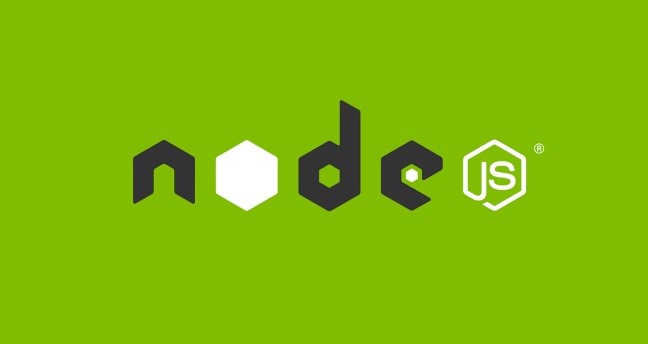Node.js is a powerful and popular JavaScript runtime that has revolutionized how web developers build and deploy applications.
It allows developers to use JavaScript for both front-end and back-end development, making it a versatile and efficient tool for creating web applications.
As a result, the demand for Node.js developers is on the rise, and it’s becoming increasingly important for web developers to possess skills specific to Node.js development.
Here’s a brief overview of the concepts you need to master if you want to become a great Node.js developer.

Understanding of JavaScript and its fundamentals
JavaScript is the backbone of Node.js, which is why Node.js developers need to have a solid understanding of the basics of the language.
This includes understanding variables, functions, object-oriented programming, and ECMAScript (ES6/ES7) features. These concepts are fundamental to all web development and indispensable when working with Node.js.
For example, understanding how to use variables, functions, and object-oriented programming in JavaScript is essential for working with Node.js modules, which are built on these concepts.
Similarly, knowledge of ECMAScript features such as arrow functions, template literals, and destructuring assignment is crucial for working with modern Node.js applications.
Familiarity with Node.js core modules
Node.js comes with a number of built-in modules that can be used to perform various tasks, such as handling HTTP requests, reading and writing files, and working with the file system.
As a Node.js developer, it’s critical to understand these modules and how to use them effectively in your web development projects.
For example, you can create a simple web server with the HTTP module and use the File System module to read and write files. Additionally, you can use the Event Emitter module to create custom events and listeners, which can be used to build more complex applications.
Experience with Node.js frameworks and libraries
In addition to Node.js core modules, you can use several frameworks and libraries to extend the functionality of Node.js. Some popular frameworks include Express.js, Koa.js, and Meteor.js. These frameworks provide a set of tools and features you can use to build web applications quickly and easily.
Similarly, several libraries can add specific functionality to Node.js applications. For example, Mongoose is a popular library for working with MongoDB, and you can use Socket.io to add real-time communication to Node.js applications.
Proficiency in Database Management
In web development, database management is essential, especially when working with Node.js. Node.js developers should understand popular database management systems such as MongoDB and MySQL and how to work with them using Node.js.
For example, Mongoose can interact with MongoDB databases, and you can use the MySQL module to interact with MySQL databases. Additionally, it’s necessary to be familiar with the basics of database design, such as creating tables and working with data.
Knowledge of Web Security
Web security is crucial for any web development project, especially with Node.js. Their developers should understand web security concepts, such as authentication and encryption, and how to implement them in Node.js applications.
Additionally, it’s important to be familiar with security best practices and how to prevent common vulnerabilities.
One of the most crucial things for a Node.js developer to understand is how to implement proper authentication and authorization for their applications.
This includes understanding the differences between various types of authentication methods, such as basic authentication, token-based authentication, and OAuth, and knowing how to use them effectively in Node.js applications.
Additionally, it’s necessary to understand how to encrypt sensitive data, such as passwords and personal information, to properly protect it.
Another important aspect of web security is preventing common vulnerabilities such as SQL injection, cross-site scripting, and cross-site request forgery. These are all types of attacks that can exploit weaknesses in web applications and gain unauthorized access to sensitive data.
Node.js developers should be familiar with the techniques and tools used to prevent these types of attacks, such as input validation and using prepared statements.
Understanding of DevOps and Deployment
DevOps and deployment are crucial for any web developer, especially when working with Node.js. DevOps brings together development and operations teams to automate and streamline the software development process.
This includes using tools such as Git for version control and Jenkins for continuous integration and deployment.
For Node.js developers, understanding how to use these tools and work within a DevOps workflow is essential for efficiently building and deploying web applications.
Additionally, it’s important to know how to deploy Node.js applications to different environments, such as local development, staging, and production, and how to configure and manage them in each environment.
Key skills for Node web developers
Node web developers are responsible for building and maintaining web applications using the Node.js platform. These developers must possess a range of technical skills to effectively create and deploy web applications. Some of the key skills required for this role include the following:
- Strong understanding of JavaScript and its fundamentals and familiarity with technologies such as React or Angular.
- Familiarity with Node.js core modules and their usage in web development projects
- Experience with Node.js frameworks and libraries for building web applications.
- Proficiency in database management for web development projects.
- Knowledge of web security concepts and how to implement them in Node.js applications.
- Understanding of DevOps and deployment for streamlining the software development process and deploying web applications.
- Excellent problem-solving skills and the ability to work well as a team.
By focusing on these and other important skills, you’ll become a more effective Node.js developer in no time and take your web development career to the next level.
